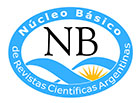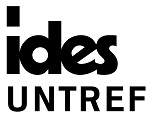The Need to Reconsider the Orthodoxy of Freedom of Speech in Digital Communication
Keywords:
Freedom of Speech, Internet, Digital Platforms, Social MediaAbstract
This article discusses the limitations of the orthodox and maximalist conception of freedom of expression in light of the controversy over the immunity enjoyed by digital platforms such as Facebook, Google or Twitter, as massive mediation spaces of information and public communication flows. By exposing notorious cases of problematic content edited in the context of the Covid-19 pandemic by these companies, and in connection with the Executive Order of the US president, Donald Trump, that in May 2020 ordered to refresh the legal norms that reach them, the article explores the paradoxes and contradictions of the emerging public communication system, with the premise that “more communication” is not equivalent to “better communication”.
Downloads
References
Arun, C. (2018). Making Choices: Social Media Platforms and Freedom of Expression Norms. Regardless of Frontiers. New York: Columbia University Press.
Balkin, J. M. (2018). Free speech is a triangle. Columbia Law Review, 11 8(7), 2011-2056.
Becerra, M. (2015). De la concentración a la convergencia: políticas de medios en Argentina y América Latina. Buenos Aires: Paidós.
Bezemek, C. (2015). The Epistemic Neutrality of the Marketplace of Ideas: Milton, Mill, Brandeis, and Holmes on Falsehood and Freedom of Speech. FirstAmend. L. Rev., 14, 159.
Botero Marino, C. (2019). Debido proceso y libertad de expresión. Legis Ámbito Jurídico. Recuperado de https://https://www.ambitojuridico.com/noticias/columnista-impreso/constitucional-y-derechos-humanos/debido-proceso-y-libertad-de
Bradshaw, T. (2016). John Stuart Mill: Freedom of expression and harm in the ‘post-truth’ era. Ethical Space. The International Journal of Communication Ethics, 14(1), 15-25.
Brant, J. (2020). Censura de Twitter y Facebook a Bolsonaro y una inédita colisión de derechos: oportunidad para hablar de regulación. Observacom. Recuperado de https://www.observacom.org/censurabot/blog/censura-de-twitter-y-facebook-a-bolsonaro-y-una-inedita-colision-de-derechos-oportunidad-para-hablar-de-regulacion/.
Brettschneider, C. (2016). When the state speaks, what should it say?: How democracies can protect expression and promote equality. Princeton: Princeton University Press.
Brown, A., y Sinclair, A. (2019). The politics of hate speech laws. London: Routledge.
Calvo, E. y Aruguete, N. (2020). Fakenews y otros encantos. Cómo funcionan (para bien y para mal) las redes sociales. Buenos Aires: Siglo XXI.
Castells, M. (2009). Comunicación y Poder. Madrid: Alianza.
Cohen-Almagor, R. (2017). JS Mill’s boundaries of freedom of expression: a critique. Philosophy, 92(4), 565-596.
DeNardis, L. (2019). The Social-Media Challenge. In M. Graham and W. H. Dutton (eds.), Society and the Internet: How Networks of Information and Communication are Changing Our Lives (pp. 348-359). Oxford: Oxford University Press.
DeNardis, L. y Hackl, A. M. (2015). Internet governance by social media platforms. Tele-communications. Policy, 39(9), 761-770.
Döpfner, M. (2014). Carta abierta a Eric Schmidt. Recuperado de http://tallerdedatos.com.ar/wp-content/uploads/2016/07/Dopfner-Google-Carta-abierta-a-eric-schmidt.pdf
Fiss, O. (1986). Free speech and social structure. Iowa Law Review, 71, 1405-1425.
Fiss, O. (1996). The irony of free speech. Hardvard: Harvard University Press.
García Canclini, N. (2019). Ciudadanos reemplazados por algoritmos. Calas: Universidad de Guadalajara.
González-Quiñones, F. y Machin-Mastromatteo, J. D. (2019). On media censorship, freedom of expression and the risks of journalism in Mexico. Information Development, 35(4), 666-670.
Gorwa, R. (2019). The Shifting Definition of Platform Governance. Models for Platform Governance. Centre for International Governance Innovation. Recuperado de https://www.cigionline.org/articles/shifting-definition-platform-governance .
Helberger, N. (2018). Challenging Diversity—Social Media Platforms and a New Conception of Media Diversity (pp. 153-175). Oxford: Oxford University Press.
Helmond, A. (2015). The platformization of the web. Social Media + Society, 1(2), 1-11.
House of Commons (2019), Disinformation and ‘fake news’: Final Report, Digital. Culture, Media and Sport Committee. Recuperado de https://publications.parliament.uk/pa/cm201719/cmselect/cmcumeds/1791/1791.pdf.
Hovyadinov, S. (2019). Toward a More Meaningful Transparency: Examining Twitter, Google, and Facebook’s Transparency Reporting and Removal Practices in Russia. Stanford Law School, working paper. Recuperado de https://papers.ssrn.com/sol3/papers.cfm?abstract_id=3535671.
Jardine, E. (2019). Online content moderation and the Dark Web: Policy responses to radicalizing hate speech and malicious content on the Darknet. First Monday, 24(12).
Karanicolas, M. (2020). Squaring the Circle Between Freedom of Expression and Platform Law. Journal of Technology Law & Policy, 20(1).
Loreti, D. y Lozano, L. (2014). El derecho a comunicar. Los conflictos en torno a la libertad de expresión en las sociedades contemporáneas. Buenos Aires: Siglo XXI.
Milosavljević, M. y Micova, S. B. (2016). Banning, blocking and boosting: Twitter’s solo-regulation of expression. Media Studies, 7(13).
Mitchelstein, E.; Boczkowski, P; Tenenboim-Weinblatt, K.; Hayashi, K.;Villi, M. y Kligler-Vilenchik, N. (2020) Incidentality on a continuum: A comparative conceptualization of incidental news consumption. Journalism, 1-18.
Moragas, M. de (2011). Interpretar la comunicación. Estudios sobre medios en América Latina y Europa. Barcelona: Gedisa.
Napoli, P. M. (2018). What If More Speech Is No Longer the Solution: First Amendment Theory Meets Fake News and the Filter Bubble.Fed. Comm. LJ, 70 (55).
Noëlle-Neumann, E. (1995). La espiral del silencio. Opinión pública: nuestra piel social. Barcelona: Paidós.
Parisier, E. (2017). El filtro burbuja. Cómo la red decide lo que leemos y lo que pensamos. Buenos Aires: Taurus.
Raderstorf, B. y Camilleri, M. J. (2019). Online Disinformation in the United States: Implications for Latin America, working paper, Inter-American Dialogue. Recuperado de https://www.thedialogue.org/analysis/online-disinformation-in-the-united-states/.
Srnicek, N. (2018). Introducción, La larga recesión y Capitalismo de plataformas. En Capitalismo de plataformas (pp. 9-86). Buenos Aires: Caja Negra Editora.
Steen-Johnsen, K. y Enjolras, B. (2016). The fear of offending: social norms and freedom of expression. Society, 53(4), 352-362.
Tirrell, L. (2018). Toxic Misogyny and the Limits of Counterspeech. Fordham L. Rev., 87, 2433.
Torres, N. y Taricco, V. (2019). Los discursos de odio como amenaza a los derechos humanos. Centro de Estudios en Libertad de Expresión y Acceso a la Información de la Universidad de Palermo. Recuperado de https://www.palermo.edu/Archivos_content/2019/cele/Abril/Los-discursos-de-odio_Torres-y-Taricco.pdf.
Van Cuilenburg, J. y McQuail, D. (2003). Media policy paradigm shifts: towards a new communications policy paradigm. European Journal of Communication, 18(2), 181-207.
van Dijck, J. (2014). Datafication, dataism and dataveillance: Big Data between scientific paradigm and ideology. Surveillance & Society, 12(2), 197-208.
Verón, E. (1993). La semiosis social. Fragmentos de una teoría de la discursividad. Barcelona: Gedisa.
Waisbord, S. (2019). Responses to the dystopias of contemporary public communication: the unlikely commitment to corporate self-regulation and digital literacy. En A. del Campo (edit.), Hacia una Internet Libre de Censura (pp. 79-100). Buenos Aires: Universidad de Palermo.
Waldron, J. (2012). The Harm in Hate Speech. Harvard: Harvard University Press.
Winseck, D. (2020). Vampire Squids, ‘the Broken Internet’ and Platform Regulation. Mimeo.
Wolton, D. (1997). Penser la communication. Flammarion, 394. París.
Wu, T. (2018).Is the First Amendment Obsolete. Mich. L. Rev., 117-547.
Downloads
Published
How to Cite
Issue
Section
License
Copyright (c) 2021 Desarrollo Económico. Revista de Ciencias Sociales

This work is licensed under a Creative Commons Attribution-NonCommercial-ShareAlike 4.0 International License.
Manuscript acceptance by the Journal implies the simultaneous non-submission to any other journal or publishing house, and the non-exclusive transmission of the author´s patrimonial rights in favor of the editor, who allows the post-print version use, under the Licencia Creative Commnos Atribución-NoComercial-Compartir Obras Derivadas Igual 4.0 Internacional (CC-BY-NC.SA 4.0) (http://creativecommons.org/licences/by-nc-sa/4.0/deed.es). Articles can be shared, copied, distributed, modified, altered, transformed into a derivative work, executed and publicly communicated, provided a) the authors and the original publication (Journal, Publisher and URL) are mentioned, b) they are not used for commercial purposes, c) the same terms of the license are maintained.
It is hereby stated that the mentioned manuscript has not been published and that it is not being printed in any other national or foreign journal.
The authors hereby accept the necessary modifications, suggested by the reviewers, in order to adapt the manuscript to the style and publication rules of this Journal.









